In 2018, the United Nations General Assembly adopted the Declaration on the Rights of Peasants and Other People Working in Rural Areas (UNDROP). This marked the culmination of a seventeen-year-long campaign by transnational agrarian social movements, notably La Vía Campesina, and allied human rights organizations. The Peasants’ Rights Research Project analyzes this case as part of the long historical expansion of international human rights norms. Because peasants participated actively in negotiating the text, UNDROP is one of the few international human rights instruments authored, at least in part, by those to whom it applies.
The Peasants’ Rights Declaration underwent many changes since the transnational agrarian movement La Vía Campesina issued a draft proposal at a 2002 conference in Jakarta, Indonesia. During five years of negotiations in the UN Human Rights Council, in 2013-2018, representatives of peasant and small farmer organizations — as well as movements of artisanal fishers, rural women, nomadic pastoralists, indigenous peoples, and agricultural workers —actively joined in the debates. The UNDROP enshrines a bundle of rights, many of which were already part of existing UN conventions and other instruments. It also expands existing norms, particularly in its recognition of a right to “food sovereignty,” a longstanding demand of rural movements, and in its insistence that many rights may be exercised “individually and/or collectively,” a formulation that pushed in the direction of group rights to land and other resources.
The research analyzes the origins, development, and current activities of the campaign, which since the 2018 adoption of the UNDROP has focused on measures related to implementation. Other research foci include the UNDROP’s impact on the civil society networks that campaigned for its adoption and on agenda-setting and negotiation processes and discourses about rights and development within the UN system. The project is also concerned with gaps in the protection of peasants’ rights, such as those involving seeds and land and territory.
The Peasants’ Rights Project has employed documentary research, key informant interviews, and participant observation in a variety of venues (e.g., peasant organization activities; civil society and NGO meetings and events; and discussions in UN bodies and agencies). The project has disseminated its findings to both scholarly and activist communities interested in human rights, development alternatives, and the rural world.
The project draws on and contributes to three bodies of anthropological and social scientific scholarship:
- The study of collective action and especially transnational agrarian movements.
- The anthropology of human rights and rights-claiming processes.
- Research on partnerships between global governance institutions, such as UN agencies, and non-state, civil society actors. It provides a window onto transnational processes of development and diffusion of new ideas about rights, in a sector of the world population that is vast and whose new rights claims have rarely been studied.
The project has been supported by grants to Hunter College Anthropology Professor Dr. Marc Edelman (PI) from the U.S. National Science Foundation's Cultural Anthropology and Law & Social Science Programs (#1024017 in 2010-2013 and #1358143 in 2014-2018) and from the PSC-CUNY Awards Program (#66785-00 44 ENHC-44-72 in 2013-2014).


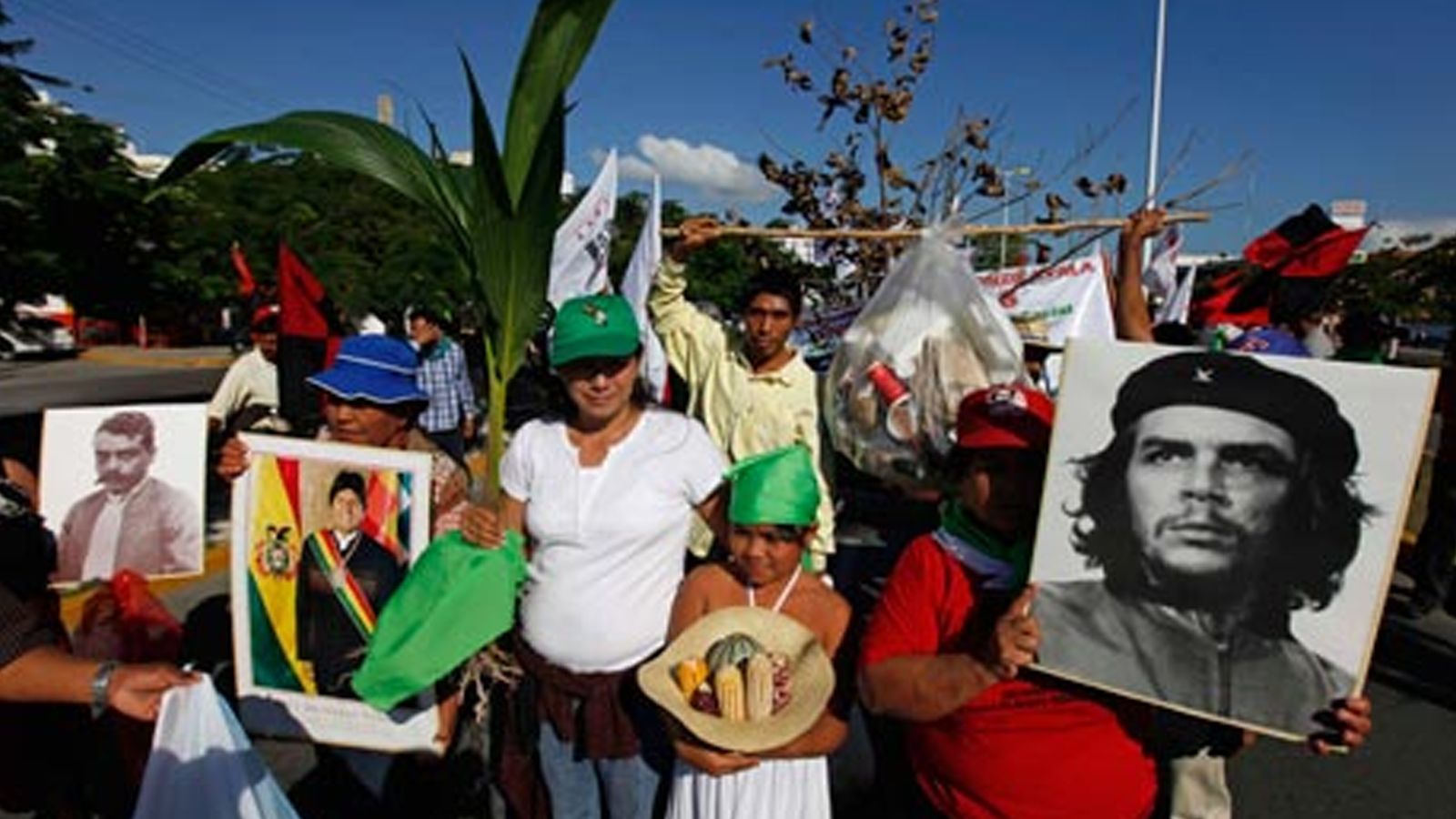
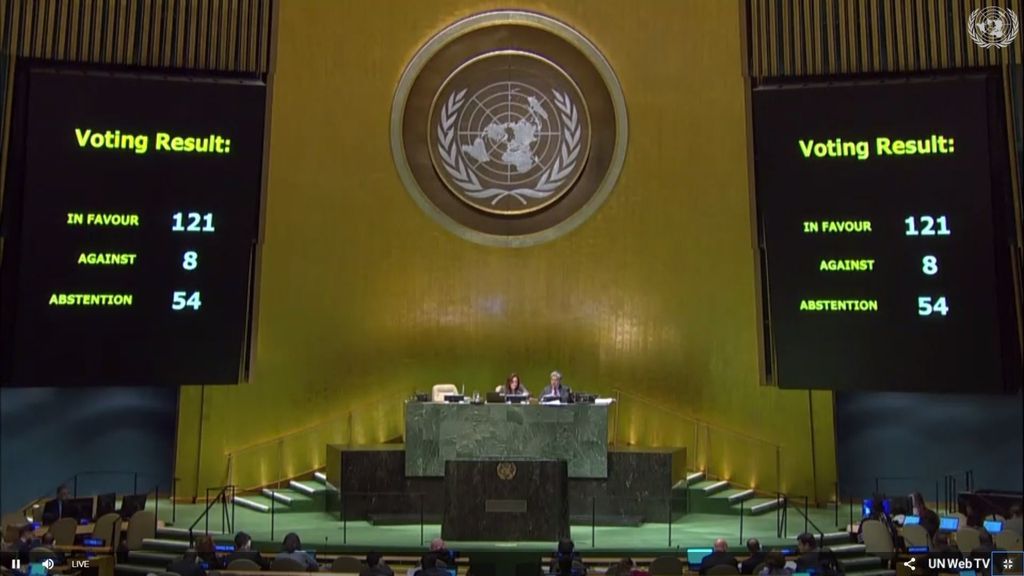

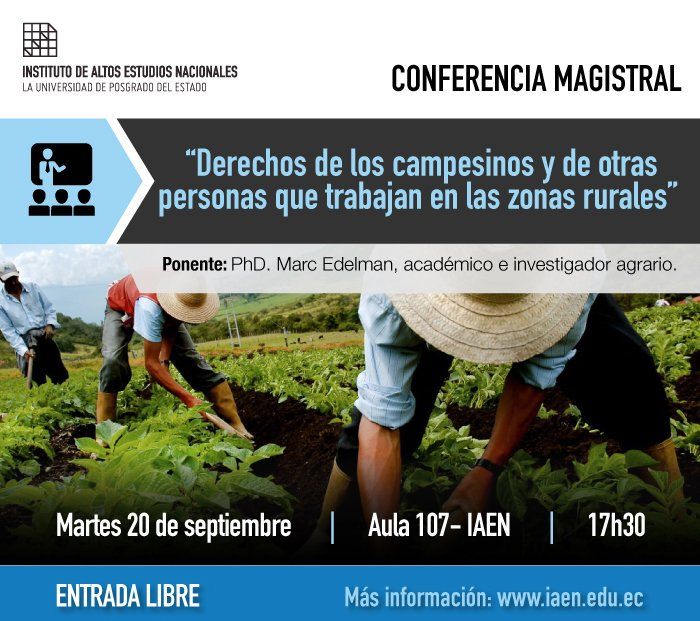
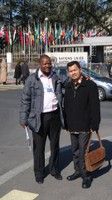 In March 2012 Edelman returned to Geneva for the 19th session of the Human Rights Council which, among other things, began to discuss the Advisory Committee's Final Study mentioned above. Consideration of a resolution to adopt the Final Study and to recommend it to the General Assembly for further consideration was postponed until the next Council session in June 2012. He also visited farms near Geneva and met with members of UNITERRE, a Swiss agriculturalists organization affiliated with La Vía Campesina. On left, Africa Mthombeni (Landless Peoples Movement, South Africa) and Henry Saragih (Indonesian Peasants Union and General Coordinator of La Vía Campesina) at the United Nations, Geneva.
In March 2012 Edelman returned to Geneva for the 19th session of the Human Rights Council which, among other things, began to discuss the Advisory Committee's Final Study mentioned above. Consideration of a resolution to adopt the Final Study and to recommend it to the General Assembly for further consideration was postponed until the next Council session in June 2012. He also visited farms near Geneva and met with members of UNITERRE, a Swiss agriculturalists organization affiliated with La Vía Campesina. On left, Africa Mthombeni (Landless Peoples Movement, South Africa) and Henry Saragih (Indonesian Peasants Union and General Coordinator of La Vía Campesina) at the United Nations, Geneva.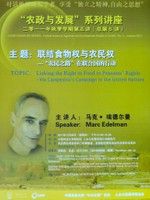 On December 8, 2011, Edelman gave a lecture on "Linking the Right to Food to Peasants' Rights: Vía Campesina's Campaign in the United Nations" in the Seminar on Critical Issues in Agrarian and Development Studies, College of Humanities and Development Studies, China Agricultural University, Beijing, China. While at CAU he also met with undergraduate and graduate students and postdoctoral researchers and led discussions on research methods in development studies and the how-to of publishing in international journals.
On December 8, 2011, Edelman gave a lecture on "Linking the Right to Food to Peasants' Rights: Vía Campesina's Campaign in the United Nations" in the Seminar on Critical Issues in Agrarian and Development Studies, College of Humanities and Development Studies, China Agricultural University, Beijing, China. While at CAU he also met with undergraduate and graduate students and postdoctoral researchers and led discussions on research methods in development studies and the how-to of publishing in international journals.